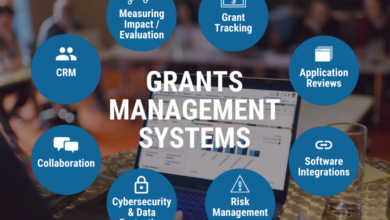Real-World Applications of Generative AI: From Art to Business Solutions

Generative AI is rapidly becoming a transformative force in various industries, transcending beyond the realms of tech labs and into the real world. This innovative technology, known for its ability to generate new content and ideas, is proving its versatility and utility in sectors ranging from art to business. By analyzing patterns and data, generative AI can create, enhance, and optimize in ways previously unimaginable. In this article, we will explore how generative AI is being applied in real-world scenarios, showcasing its breadth and depth of influence. From revolutionizing artistic expression to reshaping business strategies, generative AI is not just a futuristic concept but a present-day reality with tangible impacts.
1. Revolution in Digital Art and Creativity
Generative AI has unlocked new horizons in the world of digital art and creativity. Artists are utilizing AI algorithms to create complex, captivating artworks that challenge the traditional boundaries of art. These AI systems can analyze existing styles and generate novel artworks, often resulting in unique and unexpected creative expressions. This fusion of technology and art is not only democratizing artistic creation by making it more accessible but is also leading to the emergence of new art forms and genres.
2. Enhancing Advertising and Marketing
In advertising and marketing, generative AI is proving to be a game-changer. By analyzing consumer data and trends, AI can generate personalized ad content tailored to individual preferences. This technology is enabling marketers to create more effective and targeted campaigns, significantly improving engagement rates and ROI. From writing catchy ad copy to designing visually appealing graphics, generative AI is transforming how brands communicate and connect with their audience. Visit https://www.sap.com/products/artificial-intelligence/what-is-generative-ai.html to learn more about the real-world applications of generative AI.
3. Optimizing Product Design and Development
Generative AI is playing a pivotal role in product design and development. By leveraging AI algorithms, companies can simulate and evaluate multiple design variations, optimizing for functionality, aesthetics, and cost-effectiveness. This approach not only speeds up the design process but also leads to more innovative and customer-centric products. In sectors like automotive and electronics, generative AI is becoming an essential tool in the designer’s toolkit.
4. Transforming Content Creation and Media
The impact of generative AI in content creation and media is profound. From generating written content for blogs to creating realistic digital media, AI is enabling faster and more diverse content production. For instance, news agencies are using AI to write reports on financial earnings or sports events, while filmmakers are exploring AI for scriptwriting and visual effects. This technology is enhancing efficiency and creativity, offering new ways to captivate and inform audiences.
5. Reshaping Customer Experience and Personalization
Generative AI is reshaping customer experiences by enabling unprecedented levels of personalization. By analyzing customer interactions and preferences, AI can generate personalized recommendations, enhancing the customer journey across various touchpoints. This personalization extends to e-commerce, where AI is used to tailor product recommendations, and in customer service, where AI chatbots provide personalized support. Such applications of generative AI are not only improving customer satisfaction but also fostering brand loyalty.
6. Innovations in Healthcare and Medicine
Generative AI is making significant strides in healthcare and medicine. It’s being used to generate synthetic data for research, help in drug discovery, and even assist in personalized medicine. AI algorithms can analyze vast medical databases to identify potential drug candidates or predict patient responses to various treatments. This innovation is not only accelerating medical research but also paving the way for more effective and personalized healthcare solutions.
7. Streamlining Operations in Manufacturing
In the manufacturing sector, generative AI is streamlining operations by optimizing production processes and supply chains. AI systems can predict maintenance needs, optimize resource allocation, and even design efficient factory layouts. This application of AI is enhancing productivity, reducing downtime, and leading to significant cost savings, thereby revolutionizing traditional manufacturing practices.
8. Advancing Financial Services and Trading
Generative AI is transforming the financial sector by enabling smarter, data-driven decision-making. In trading, AI algorithms can analyze market trends and make predictive analyses for investment strategies. In personal finance, AI is used for creating tailored financial plans and advice. This technology is enhancing the accuracy and efficiency of financial services, providing a competitive edge in a rapidly evolving industry.
9. Enhancing Education and Training
In education, generative AI is being used to create personalized learning experiences and materials. AI can generate educational content tailored to individual learning styles and needs, making education more accessible and effective. In professional training, AI is used for creating realistic simulations and scenarios, providing a hands-on learning experience that is both engaging and informative.
10. Breakthroughs in Agriculture and Environmental Sciences
Generative AI is also making an impact in agriculture and environmental sciences. It’s being used for crop optimization, predictive analysis of weather impacts on agriculture, and even in biodiversity research. In environmental sciences, AI helps in modeling and predicting ecological changes, aiding in conservation efforts and sustainable resource management.
Conclusion
The real-world applications of generative AI are as diverse as they are transformative. From art and design to business solutions and beyond, this technology is not just a tool for efficiency and optimization but a catalyst for innovation and creativity. As AI continues to evolve, it is bound to unlock even more possibilities, reshaping industries and impacting every facet of our lives. The journey of generative AI is an ongoing one, marked by continuous learning, adaptation, and advancement. It’s a journey that promises to redefine the limits of what’s possible, opening doors to a future brimming with potential and opportunities.




